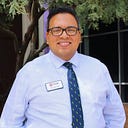Taking the road not taken
When Robert Frost penned the poem The Road Not Taken it struck a chord with his readers, and it still does today a century after its publishing in 1916.
The words are famous, not only because they are beautifully written, but also because they speak to us in ways that make us think about ourselves, the decisions we make, and how valuable a new beginning can be just when we need it.
“Two roads diverged in a yellow wood, and sorry I could not travel both,” the poem opens. It’s an amazing statement because the writer begins with an apology.
It seems apologies are less available these days. We are all correct always, no what we do and say. Your way of living is ok and so is mine. My truth is truth, and so is yours, even though it’s different. Everything is relevant. Not much is black and white anymore.
Think of the power of the apology, someone is admitting something about himself when he says it. I’m sorry. It’s a powerful statement.
The poem continues “and be one traveler, long I stood and looked down one as far as I could to where it bent in the undergrowth.”
Life is full of making decisions in the moment. Look around you and suddenly you realize that there is a path to choose and there…
